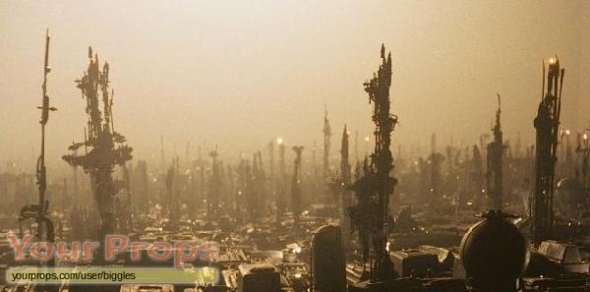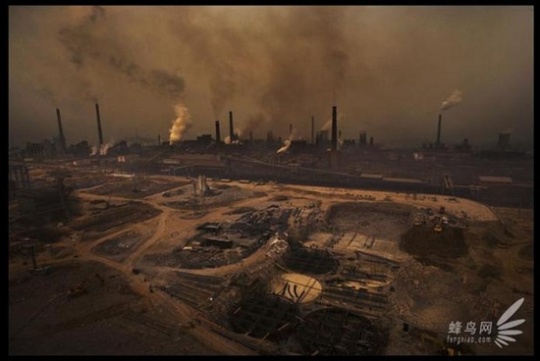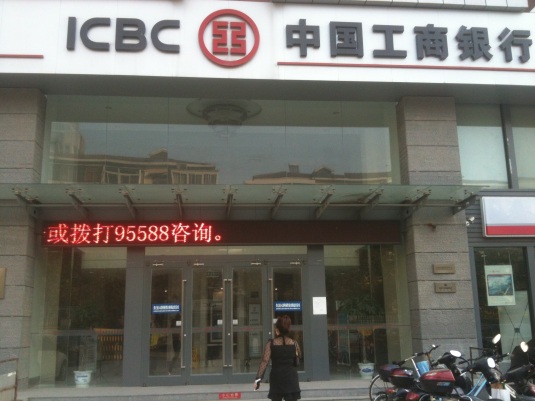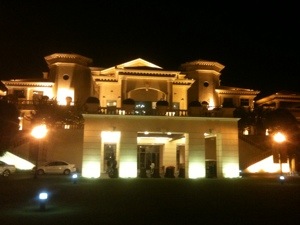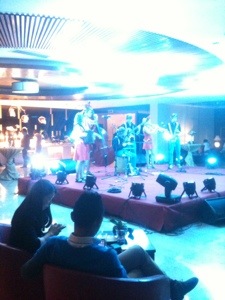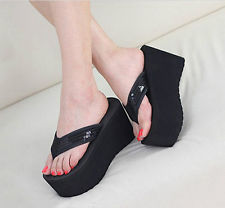Hey kids!
Contrary to popular belief, not everyone in the world can speak English… this means that you may find it beneficial to either a) hire a bilingual goat or b) learn some phrases in the language of the country which you are visiting. If you opt for the latter, then please enjoy my guide to survival Chinese.
The first thing you’re going to encounter in China is a mumbling, strictly-Chinese speaking Taxi driver (make sure it’s from an official taxi rank, never take a taxi from the people who run at you shaking their keys, they will rip you off). Have the address of the place you wish to go to prepared. This means printing out a map (taxi drivers do tend to get lost, and they never use GPS), and not only having the address translated or in pinyin. Honestly, I don’t understand why hotel booking sites even bother with this, because a lot of the older generation in China don’t even read pinyin. Have the Chinese characters printed out in large, obvious font, this way you can point to the address, and say
“我要去这儿“ [ I want to go here] wo yao qu zhe er [pinyin]// war y-ow chew jar [phonetic]
If they start trying to set a price with you, point to the meter and say:
“打表啊!” [Run the meter] da biao a! // dar bee-ow ah!
If they refuse, get out and say “bye bye!”
When you get to the hotel, hand them your passport and booking details.
“我要入住“ [I want to check-in] wo yao ru zhu // war yow roo joo
护照 [passport] hu zhao // hoo jow
They will ask you for more money, this is the deposit if you have already paid online, so don’t be surprised and have extra yuan on you.
Numbers:
一, 二,三,四,五,六,七,八,九,十[1,2,3,4,5,6,7,8,9,10] yi,er,san,si,wu,liu,qi,ba,jiu,shi // yee, ar, sun, ser, woo, lee-o, chee, bar, jee-oh, shir
十一,十二...[11, 12…] shi yi, shi er… // shir-yee, shir-ar… (easy! Just add ’10’ with another number to make 11-19)
二十, 二十五...三十二... [20, 25, 32…] er shi, er shi wu, san shi er // ar-shir, ar-shir-woo, sun-shir-ar (easy! Add a number (2-9) plus ’10’ to make the numbers 20-90, then simply add another number at the end for 25, 32 etc.)
一百,两百/二百, 三百... [100, two-hundreds/ 200, 300…] yi bai, liang bai/ er bai, san bai.. // yee-buy, lee-ung-buy/ar-buy, sun-buy (For 100-900, choose your number and add ‘100’ (bai/buy) to it. For 200, the word for ‘couple’ may be used, as in “A couple of hundreds”)
一千... [1000…] yi qian// yee-chee-an (1000’s follow the same pattern as 100’s)
Of most importance once you’re actually in the country is food, followed closely by shopping. Here, you can have some one-on-one experiences with the locals, I’ve only ever really had good fun shopping (outside of Beijing Silk markets) and the keepers are usually very talkative, curious and accommodating. If you aren’t confident enough to use this vocab, greet in English and they will switch for you.
Shopping:
你好 [hello] ni hao// nee how
老板 [‘Owner’] (call over) lao ban// l-ow ban
这个 [this one] zhe ge// jay ger
多少钱?[how much?] duo shao qian? // dwar sh-ow chee-an
我只看看 [I’m just looking] wo zhi kan kan // war jer can-can
太贵了[too expensive] tai gui le// tay goo-ay la
便宜一点可以?[Can you do it a little cheaper?] pian yi yi dian ke yi?// pee-an yee yee dee-an ker-yee?
不用 [I don’t want it] bu yong// boo yoong
好的![Ok!] hao de! // how dur
谢谢 [Thanks] xie xie// share-share
Money:
——块 [bucks] kuai// koo-ay (slang for yuan)
——元 [yuan] yuan// yoo-an
——RMB[yuan]
When you’re eating, treat it as one big adventure. Usually you will have no idea what you’re ordering, so bonus if there are pictures or hilarious english translations (like my recent order of ‘double smelly.’) My favourite tactic is to point out someone else’s food (not considered rude) and ask for “that one” [zhe ge // jay gur]
Food:
服务员 [waiter!] (call over) fu wu yuan// foo woo yoo-an
——个,i.e. 一个菜,三个人 [measure word, i.e. 1个 dish 3个 people] _ ge, yi ge cai, san ge ren // _gur, yee gur ts-ay, sun gur ren
米饭 [rice] mi fan// mee fun
热 [hot] re// rur
辣 [Spicy] la// lar
一点点 [A little] yi dian dian/ yee dee-an dee-an
冰 [cold/iced] bing// bing
打开[open] da kai// dar k-eye
对/ 不对 [right/incorrect] dui/ bu dui// doo-ee/
boo doo-ee
买单[pay the bill/ I want to pay the bill] mai dan// my dan
好吃![lovely food/good meal] (a compliment) hao chi // how chur
吃饱了[I’m full] (a compliment) chi bao le// cher bow ler
包子 [steamer buns] bao zi// bow zer
肉 [meat] rou// row
菜 [vegetables] cai // ts-ay
有/没有 [have/don’t have] you/mei you // yo/ may yo (for example, don’t have ‘meat’ rou/row)
喜欢/不喜欢 [like/ don’t like] xi huan/bu xihuan // shee hoo-one/ boo-shee hoo-one (for example, don’t like ‘this’ zhe ge/jay gur)
会/不会 [can/ cannot, able/ not able to] hui / bu hui // hu-ee/ boo hu-ee (for example, I can’t ‘eat’ chi/ cher ‘spicy’ la/lar)
再见 [bye!] zai jian// zay jee-an
带走[take away] dai zou// die zoh
Ok, so that’s the big stuff covered, phew, what a lot to remember! It seems daunting, but really these words are incredibly common and you will find yourself having the same conversations over and over again.
Bonus Fun-time Chinese:
最近怎么样?[how have you been?] zui jin zenme yang? // zoo-ee jin zer ma young?
吃了吗?[have you eaten?] (How are you?) chi le ma? // chur lur mar?
对不起 [sorry] dui bu qi // doo-ee boo chee
不好意思 [pardon me] (if you knock into someone, etc. There is no word for getting people out of your way, just push) bu hao yisi// boo how yee sir
谢谢 [thanks] xie xie// share-share
不用谢 [no need to thank me] bu yong xie // boo yoong share
老外/外国人 [foreigner] lao wai/ wai guo ren // l-ow w-eye/ w-eye gwor ren
美女 [lit. beautiful young girl, Ms.] mei nu// may nyoo
帅哥 [lit. handsome young man, Mr.] shuai ge// shoo-eye gur
你叫什么名字?[What’s your name?] ni jiao shenme mingzi? // nee jee-ow sherma ming zur?
我叫— [My name is…] wo jiao..//war jee-ow…
你是哪国人?[Where are you from?] ni shi na guo ren? // nee shur na gwor ren?
我是—— 澳大利亚人 [I am…. Australian] wo shi… ao da li ya ren // war shur… ow dar lee ya ren
你的中文很不错 [Your Chinese is great!] (expect this after every ‘ni hao// nee how‘ you say) ni de zhongwen hen bucuo!// nee de joong wern hen boo ts-wor
哪里哪里 [not at all] (modest) na li na li // nar lee nar lee
明白吗? [Is that clear?] ming bai ma? // ming buy mar?
我不明白[I don’t get it… (your meaning)] wo bu ming bai // war boo ming buy
听懂吗?[Do you understand?] ting dong ma? // ting doong mar?
我听不懂 [I don’t understand] wo ting bu dong // war ting boo doong
再说 [say it again] zai shuo// zay shwoar
你会说英语吗?[Do you speak English?] ni hui shuo yingyu ma? // ni hoo-ee shwoar ying yoo mar?
会/不会 [Can/ Cannot] hui/bu hui // hoo-ee/ boo hoo-ee
我不会说汉语 [I can’t speak Chinese] wo bu hui shuo hanyu // war boo hoo-ee shwoar han yoo
我的汉语不好 [My Chinese is not so good] wo de hanyu bu hao // war der han yoo boo how
我怎么去-— [How do I go to…] wo zenme qu.. // war zerma choo….
警察局 [police station] jingcha ju // jingchar joo
银行 [bank] yin hang // yin hung
商场 [shopping centre] shang chang// sharng charng
…路 […road] ..lu// loo
地铁站 [subway station] di tie zhan// dee tee-yeah jan
在这儿 [here] zai zhe er // zay jar
在那儿 [there] zai na er // zay nar
进/远 [close/far] jin/yuan // jin/ yoo-an
…分钟 […minutes] …fenzhong// …fen joong
打的 [take a cab] da di // dar dee
帮我! [help me] bang wo! // bung war!
请问… [excuse me…] (to ask a question) qing wen… // ching when
你干嘛儿? [What are you doing?] (also, if you almost get hit by a scooter scream this after them to imply “What the hell are you playing at?!) ni gan maer ? // nee gan maarrrrrrr ??
他妈! [fuck] (When you actually get hit by a scooter) ta ma!// tar mar!
下车 [Getting off] (to get people to move aside when you’re getting off a subway) xia che// shar cher
干杯![Cheers!] gan bei! // gan bay!
可爱的 [Cute] keai de// ker eye der
小心吧![Careful!] xiao xin ba! // sh-ow shin bar
我爱中国 [I love China] wo ai zhongguo // war eye joong gwoar
FINAL NOTES:
Speaking horrific Chinese goes well with a huge smile and plenty of gestures. Always keep it pleasant and you will find yourself with discounts, friends and even the offer of potential husbands/wives.If you have a smart phone, download PLECO app. which allows for instant translation which you can show to someone if all else fails. Remember that you will be recognised fairly quickly as a foreigner, and there is no better way to strip back the unfortunate barrier of ‘othering’ that tends to happen then to approach them and make a genuine effort to communicate. Never assume that people can, or should, be able to speak your language, you may inadvertently embarrass someone when it should be you feeling all embarrassed and awkward about not bothering to learn a word of Chinese.
{Written for Steve, but available to the masses.}
Peace out!
